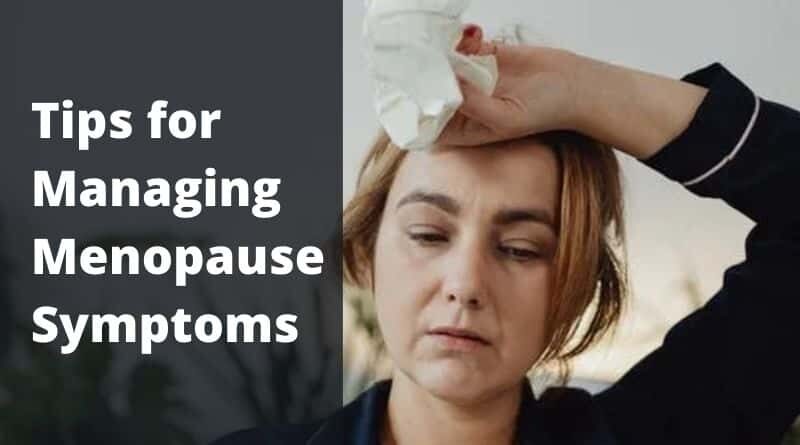8 Tips for Managing Menopause Symptoms During and After the Holidays
Managing menopause at any time is already tricky, and the demands of the holidays can make it even more difficult. If you’re wondering how to manage your menopause during the holiday season, here are our top tips for menopause relief during the most wonderful time of the year.
Table of Contents
Reduce your to-do list.
Many women’s regular to-do lists are already a mile long, and the holidays only make it worse. If you feel totally overwhelmed by everything you “have” to do, take a step back and assess your list of tasks. Do you really need to attend that ornament exchange party hosted by your second cousin? What about volunteering to help with multiple school holiday celebrations? Or baking something from scratch for literally every get-together you attend? Go through your list and eliminate everything that isn’t totally essential, and you might be surprised by how much you don’t actually need to do.

Delegate, delegate, delegate.
Once you’ve narrowed down your list, take another look at it and decide how much of it actually needs to be done by you, and how much of it your friends or family members can help with. For instance, instead of you handling both the gift shopping and the gift wrapping, your partner can do one and you can do the other. If you normally cook the entire Christmas feast, then choose one or two of your favorite dishes to make and then ask your guests to bring the rest, potluck style. Your kids can help out with smaller things such as baking cookies and tidying up before guests come over. Don’t feel like you have to do it all by yourself this holiday season.
Read: Signs of Perimenopause
Watch your alcohol and caffeine intake.
Caffeine and alcohol are the two beverages of choice during the holiday season. While they may help you stay awake in the early morning or chill out after a tough day, they also have some unfortunate side effects for menopausal women. Yep, that’s right — both alcohol and caffeine have been known to make certain menopause symptoms worse, including bladder irritation that can cause incontinence. Some studies have also linked them to worsened hot flashes and the resulting menopause body odor, though more research is needed in this department. Suffice it to say, you should watch your intake of these beverages and try scaling back if you notice your menopause symptoms getting worse.
Be aware of what you eat.
Alas, beverages are not the only consumables that can make menopause symptoms worse. What you eat can have just as much of an effect on your body, contributing to menopausal bloating, worsening incontinence, and triggering hot flashes. Many of these foods are common around the holidays, including spicy foods, tomato products, citrus fruits, and most especially chocolate. As with drinks, you should consume these foods in moderation while keeping a close watch on your menopause symptoms. If you start feeling worse, then try eating less of the known trigger foods to see if that helps.

Get enough sleep.
Yes, we know that it’s hard to lie down for one-third of the day when you could be doing things with that time. But sleep is really important to keeping your stress levels down and your menopause symptoms under control. If hot flashes are what’s keeping you up at night, then take steps to mitigate them, such as switching to breathable pajamas and lowering the temperature before you get into bed. Putting yourself on a sleep schedule will also help regulate your circadian rhythm and make it easier for you to fall asleep and stay asleep.
Read: Steps to Ensure Women’s Health
Keep taking care of your health.
It’s easy to let more routine health concerns slide to the bottom of the to-do list until after the holidays are over. Many people put off check-ups and exams, let their dietary restrictions slide, and sometimes slack off on exercises, medications, and other maintenance care. While this inclination may be understandable, it can also be really detrimental to your health in both the short- and the long term. If you have things that you need to do to keep your menopause or another health condition in check, then make that part of your holiday to-do list alongside gift wrapping and baking. Your health matters year-round, even during the busy holidays!

Take breaks for yourself.
However, this doesn’t mean that you should only make time for yourself if it’s health-related. The holidays are immensely stressful, which can really take a toll. This is especially true for older women, who are often the primary event planners, cooks and bakers, and gift shoppers for the family during the holidays. Sometimes, you just need to relax with a holiday rom-com movie or take a long bath without worrying about doing something productive or healthful. As the holiday season kicks off, make sure that you’re taking time for yourself to unwind instead of working every second of the day.
Slow down and appreciate the present.
During the holidays, it’s easy to get caught up in the hustle and bustle. Your list is a million items long, so as soon as one thing is accomplished or one event is over, you immediately have to move on to the next one. While this may make you feel productive, it will also probably make it impossible to recall the holiday season as anything other than a blur when you look back. Instead of rushing through everything, make sure that you are taking time to slow down and savor the moment with your loved ones. There will never be a holiday season exactly like this one again, so make the most of it while it lasts.
Menopause doesn’t have to make the holiday season a drag. Follow these tips to keep your symptoms under wraps as we bring the year to a close.




